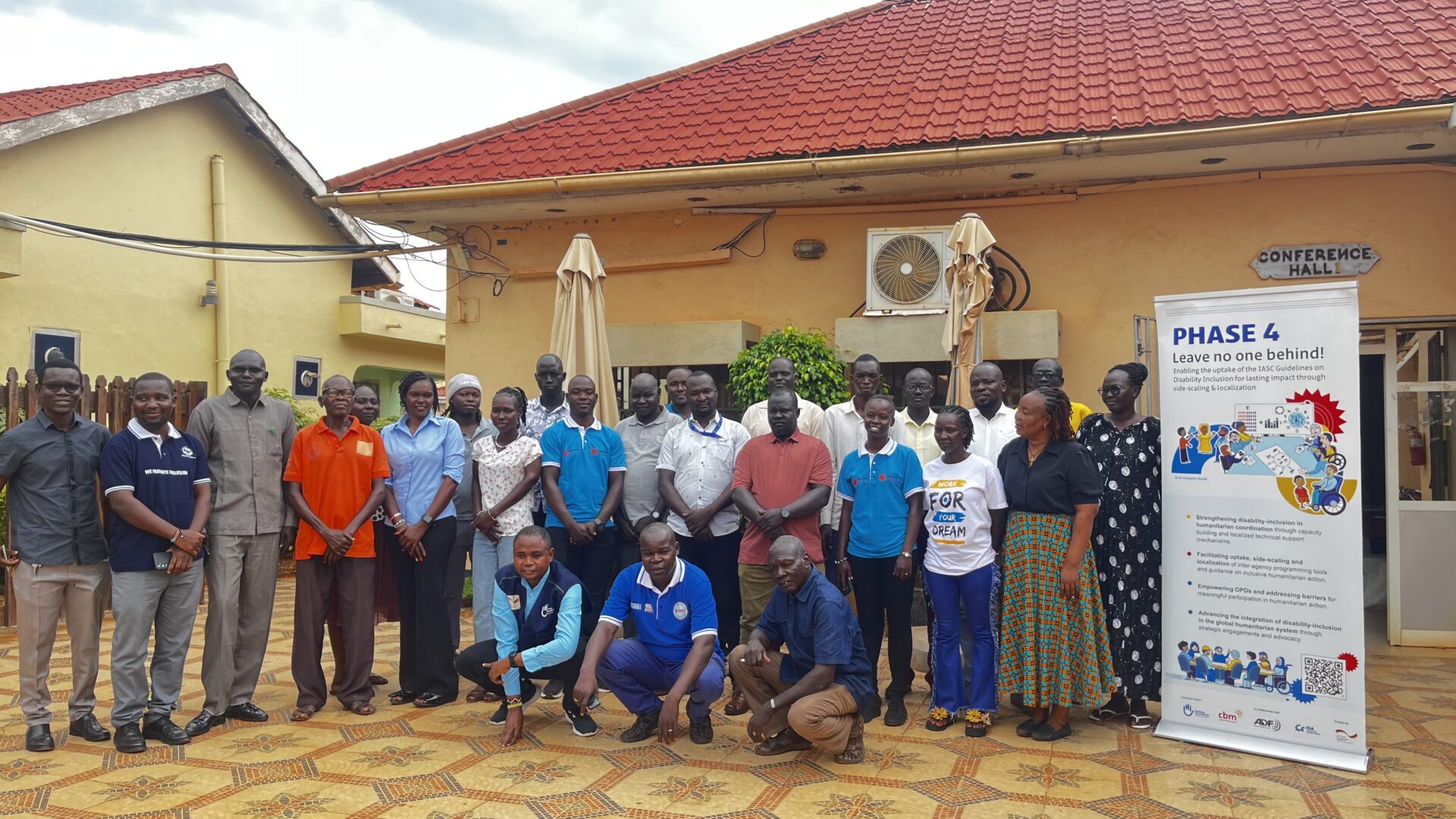From Global to Grassroot: Strengthening Inclusive WASH through RAAL Lab Training in Wau
Category
General South Sudan
© Seppora/HI
The Phase 4 – Leave no one behind project team conducted its first Review, Adapt and Action Learning Laboratory (RAAL Lab) workshop in Wau, Northern Bahr el Ghazal, South Sudan, from August 19th to 21st 2025. The workshop focused on inclusive Water, Sanitation and Hygiene (iWASH) and brought together 30 WASH partners from international and national non-governmental organizations (NGOs), Organizations of Persons with Disabilities (OPDs), and government institutions, primarily the Department of Public Utilities, which leads the WASH cluster at the state level.
The RAAL Lab methodology is an innovative, interactive process that allows participants to review, develop, and adapt existing assessment tools in order to align them with the Inter-Agency Standing Committee (IASC) Guidelines. This training is based on modules 1, 2, 4, and 5 of the Inclusive WASH Package, which were selected by participants.
Participants welcomed the training as timely, given the ongoing humanitarian reset where disability inclusion is being prioritized as the shift moves from needs-based to risk-based approaches. OPD co-facilitators shared their experiences with the barriers they face when accessing WASH facilities. These experiences inspired partners to think more inclusively, highlighting that WASH interventions should provide services and eliminate barriers to access and dignity.
The RAAL Lab in Wau was more than just a workshop. It provided a foundation for WASH actors to gradually incorporate changes into their programs, ensuring that everyone, everywhere, has access to water, sanitation, and hygiene with dignity and without barriers.
One participant noted,
“The RAAL Lab gave us the space to pause, listen, and adjust. It reminded us that effective WASH is not just about providing water and sanitation, it is about ensuring every person can benefit, regardless of ability. It is a human right.”